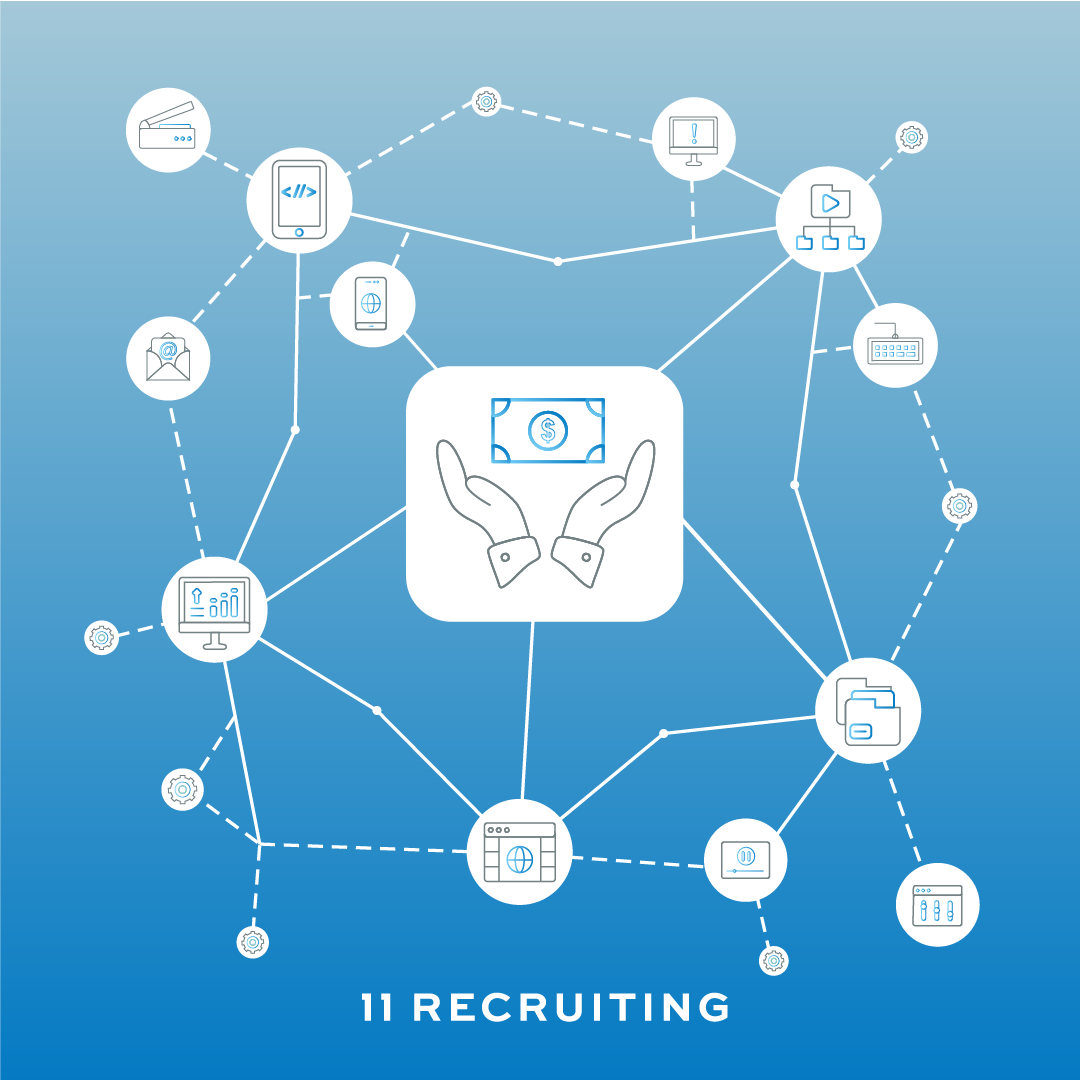
The term Information Technology has only been around since 1978, roughly above 40 years. It’s considered as a fairly young concept that has rapidly evolved throughout time. Now we use it in different fields such as Finance, Engineering, and Accounting. You might even use IT in ways you weren’t even aware about.
One of IT’s most convenient uses is through finance. Who likes keeping track of finances through pen and paper? Information Technology in finance has paved the way to a more convenient and accessible world, more than just keeping track of what you spend. Now, you can buy, sell, earn, and invest through your fingertips.
Banks enhance customer experiences by offering money management programs and insurances. These include one-on-one meetings with financial consultants. Insider Intelligence stated that financial services partner with firms in industries such as fintech, telecom, retail, healthcare, energy, and more.
How Society Uses Technology in Finance
Most computer science professionals and students know that the core and backend of any technology is a sea of binary codes. Throughout the years, IT has simplified this. Now it’s used by billions of people around the world whether they’re aware of it or not. Here are some examples of how we use IT in finance:

Online Shopping
Before the age of instant shopping, we would go to the store to buy the things we wanted. Although there was an allure of seeing the item up front, it consumed so much of your energy we’d end up drained at the end of the day.
Information technology made it easier to order the things you want and need online. Yes, you can buy almost anything online. It connects your accounts to your bank making it easy to spend your money without leaving your couch.
IBM and Mastercard spearheaded cashless transactions that use IT solutions. To be successful, banks invest in wide-scale protection against cybersecurity breaches that comply with government regulations. More customers choose to pay cashless that heightens the demand for IT in financial services.
Mobile Banking
Remember the long lines at the bank where you would use to spend hours for a transaction? Well those days are gone. Banking has come a long way from the brick and mortar style of transactions.
Information Technology has made it easier to manage your personal finances by providing means to securely transfer and receive money directly to your bank account. This also includes cryptocurrencies and the like.
Manage Personal Finances in Mobile Phone
- Insider intelligence found that financial services customers who use personal finance management tools are 18% richer than those who do not. In particular, customers who use PMF tools are tech-savvy, young adults.
- Leaders in the financial services industry provide customers the freedom to create their own checking account virtually and access personal loans.
Payroll
- If you talk to your parents about how they received their first and last pay, you’d be surprised that they literally got it in cold hard cash or check. Now, you instantly get what you earn right at the palm of your hands. This has paved the way to working remotely and freelance jobs. You can now earn wherever you are in the world.
- Fin-tech companies have come up with payroll systems that can automatically pay employees for their billed work hours. Since employees are paid on time, they are more likely to be happy and motivated to work. Now employees don’t have to deal with taxes since the software is automated to do it for them. All while saving the human resource department a headache on managing salaries and wages.
Investments and Insurance
Have you seen how hectic the work environment at the stock exchange is? Or have you ever had experiences with super slow insurance approvals? Well that doesn’t have to happen with IT.
With the boom of fintech and investment apps, you can now buy and withdraw shares with just a few clicks. You can even see the actual progress of businesses through the monitoring features of these financial apps. For insurance policies, you don’t have to go to the bank to pay your dues. You can securely pay everything online!
Social Media Ads and Streaming Apps
This might be the most subconscious way that you use Information Technology in your day-to-day life. If you’ve seen ads on your social media page that you were just talking about, chances are, someone placed them there for you to see, and it costs money. It works the other way around when you’re the one placing the ads. You spend money on ads to expand your profit pool.
Have you ever wondered how Netflix profits from your limitless binge-watching? it’s a far cry from its old business practice like blockbusters. Monthly subscriptions that you pay through your credit card is a form of Information technology in finance
Frequently Asked Questions
What is Fintech?
Financial technology or fintech refers to the integration of information technology to the traditional transactional methods. It is currently a booming industry that’s creating a huge demand for tech experts from engineers to developers. Recruiters specializing in Information Technology provide companies with talented professionals that fit for these positions.
What is a Blockchain?
Blockchain is a recording system used for cryptocurrencies that have a peer-to-peer network. It is publicly accessible. fin-tech companies hire IT experts to monitor changes and updates to keep up with the pace in the digital-financial industry.
What is ICT in finance?
Information and Communications Technology. It allows financial institutions to effectively manage online products and services. This is also important for real-time international transactions. This is often used by banks to transact outside the country of origin.
Engineers and Compliance officers work together to have a seamless process for any transactions. Companies that use digital and international transactions should have a team or an officer that would handle this position.
Top Fintech Jobs
- Apps Developer: As the fintech industry grows, the demand for innovative and convenient apps also grows. This job requires expertise in programming.
- Cybersecurity Analyst: This is one of the most important jobs in the field. They prevent hacking and online robbery, scams, and fraud to protect your hard earned money. The skills needed for this job are mainly programming, troubleshooting, and quality assurance testing.
- Compliance Experts: Although the name might sound vague, the main task of a compliance expert is to check and validate if the fintech companies follow the rules and regulations set by the government, financial groups, and other mandated laws.
- Data Specialists: Needless to say, data analysts are essential to the fintech industry. They are basically the people who handle Information technology in Finance to catch on any problems, trends, and improvements a company can make to be more competitive.
Hiring top talent within tech and finance can be quite competitive. Let us support you find your next star employee.

